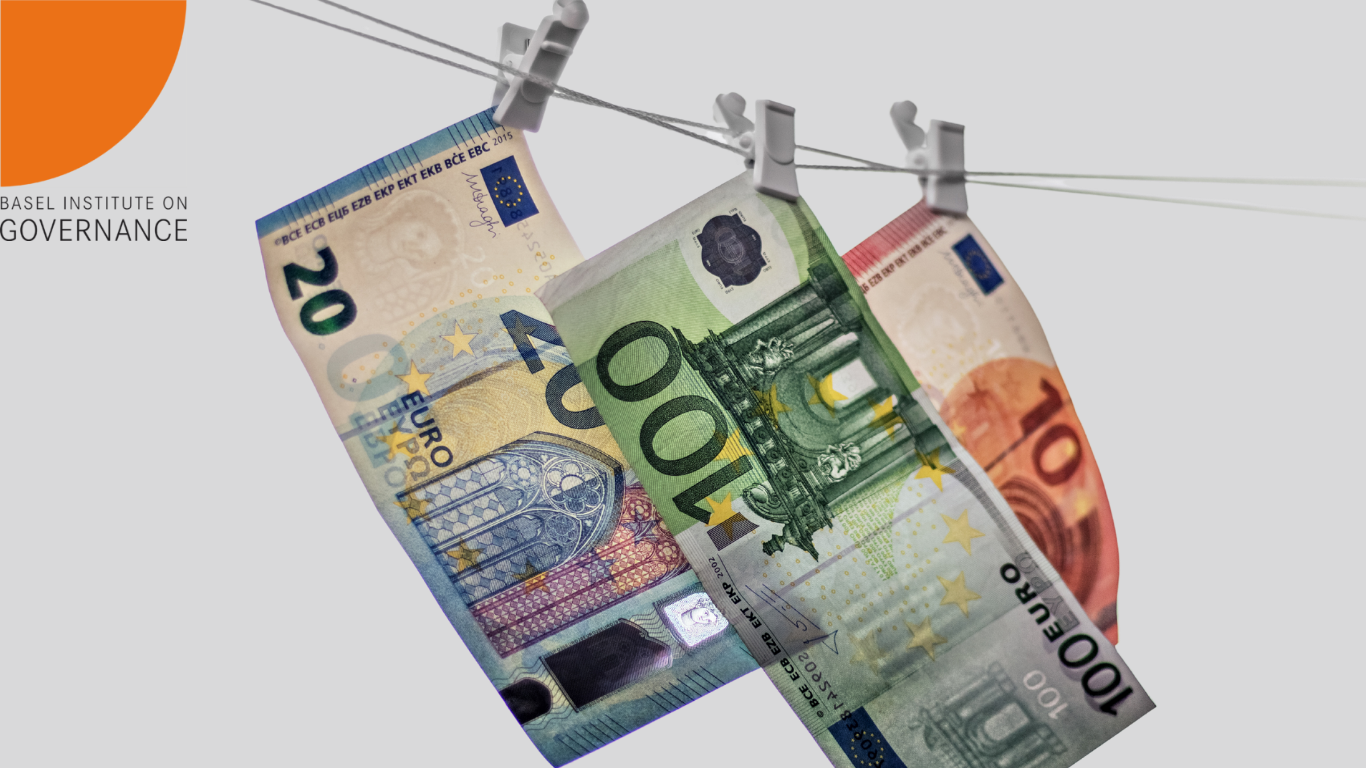Money laundering is a pervasive issue, and criminals continuously explore new methods to conceal their illicit funds. Among the various techniques employed, money laundering through real estate stands out as one of the most commonly used. Criminals often exploit the high-value nature of real estate transactions as a means to legitimize their ill-gotten gains.
The real estate sector, known for significant financial transactions, becomes an attractive avenue for money laundering. Notably, large sums of money change hands in real estate deals, making it an appealing choice for criminals seeking to integrate their illegal funds into the legitimate economy.
To illustrate the scale of the issue, it is estimated that approximately $30 billion of funds with uncertain origins entered the German real estate market in 2017 alone. Similarly, in the Greater Toronto area of Canada, approximately $20 billion entered the real estate market over the past decade without proper scrutiny from anti-money laundering authorities. These staggering amounts highlight the magnitude of the problem and the need for increased vigilance and regulatory oversight.
One commonly employed method by criminals involves purchasing real estate using cash and concealing their ownership through intricate webs of shell companies or hidden property ownership. This allows them to obscure the trail of funds and make it challenging for law enforcement agencies to trace the illicit origins.
Furthermore, criminals employ various other techniques within the real estate industry to launder money. These methods include property flipping, where properties are bought and sold rapidly to generate profits and create the appearance of legitimate transactions. Additionally, criminals may inflate property values, manipulate lease agreements, or engage in complex mortgage fraud schemes to facilitate their money laundering activities.
The use of real estate for money laundering not only poses a significant challenge to law enforcement agencies but also undermines the integrity and stability of the real estate market itself. It allows criminals to inject illicit funds into the legitimate economy, distorting property prices and potentially impacting the overall financial system.
To combat this issue effectively, authorities and anti-money laundering bodies are increasingly focusing on strengthening regulations, enhancing due diligence requirements, and improving transparency within the real estate sector. The implementation of robust Know Your Customer (KYC) procedures, thorough background checks on buyers and sellers, and increased cooperation between financial institutions, real estate professionals, and law enforcement agencies are crucial steps in mitigating the risks associated with money laundering in real estate.
How Do Criminals Launder Through Real Estate?
Criminals employ various methods to launder money through real estate transactions, exploiting loopholes and utilizing third parties to conceal their involvement. Understanding these techniques is crucial for combating money laundering effectively. Here are some common methods employed by criminals:
Use of Third Parties: Criminals often rely on individuals they know, typically family members with clean records, to purchase real estate on their behalf. By conducting the transaction through the third party's account, the criminal's name is kept out of the purchase documents, making it harder to trace the illicit funds.
Utilizing Credit and Mortgage: Credit and mortgage can serve as collateral for laundering criminal proceeds. Criminals may secure loans against the property, and the resulting funds are mixed with legitimate funds, making it difficult to distinguish between legal and illegal funds.
Manipulation of Property Values: Collaborating with real estate agents or appraisers, criminals manipulate property valuations. This can involve either undervaluing or overvaluing the property. Undervaluation allows criminals to acquire loans while overvaluation maximizes the amount that can be laundered by obtaining larger loans based on inflated property values.
Structuring Cash Deposits: Criminals may deposit cash across multiple banks to avoid triggering the reporting threshold, which would require the bank to report the transaction. These funds are then used to obtain bank checks or other legitimate forms of payment to purchase real estate.
Rental Income as Legitimization: Criminals generate rental income from their properties and use illicit funds to cover the rent payments. Alternatively, they may purchase properties on behalf of third parties, rent them out themselves, and utilize illegal funds to meet the rental obligations, thereby legitimizing the origin of the money.
Real Estate Transactions as Facilitators: Criminals purchase properties, invest black money in renovations, and subsequently sell the properties at higher prices. This process allows them to legitimize their illegal funds and create the appearance of legitimate transactions while laundering money in the process.
Use of Front Companies: Criminals establish shell companies in foreign jurisdictions to own real estate, enabling them to move black money across borders. These front companies provide a veil of secrecy and make it challenging for authorities to trace the flow of funds.
What are Red Flags in Real Estate Transactions?
Identifying red flags in real estate transactions is essential to detect potential money laundering activities. Here are some additional red flags to consider:
- Red Flag 1: Unusual Cash Offers or Third-Party Financing: If someone offers you a significant amount of cash to purchase a property or suggests third-party financing without a legitimate explanation, it could be a sign of money laundering. Criminals may use cash transactions to obscure the origin of funds or involve third parties to distance themselves from the illicit activity.
- Red Flag 2: Rapid Flipping of Properties: Multiple property transactions involving the same individuals or entities within a short period, often at inflated prices, may indicate money laundering. Criminals may artificially inflate property values through coordinated sales to legitimize their illicit funds.
- Red Flag 3: Complex Ownership Structures: Transactions involving complex ownership structures, such as offshore companies or trusts, can be an indication of money laundering. These structures may be used to obscure the true ownership and control of assets, making it challenging to trace the funds' origin.
- Red Flag 4: Unjustified Over- or Under-Valuation: Suspicion arises when a property is significantly over- or undervalued without a valid explanation. Overvaluation may indicate an attempt to obtain larger loans or inflate the purchase price to launder money. Conversely, undervaluation could be a method to transfer assets or avoid tax liabilities.
- Red Flag 5: Unusual Rental Arrangements: Unusual rental agreements, such as excessive rent payments or the use of rental income to cover unrelated expenses, may be indicative of money laundering. Criminals may use rental properties to generate "clean" funds by receiving excessive rents or disguising illicit funds through rental payments.
- Red Flag 6: Inconsistent or Suspicious Documentation: Incomplete, inconsistent, or forged documentation within a real estate transaction can be a sign of money laundering. Pay attention to discrepancies in identities, addresses, or financial information of the parties involved, as well as missing or altered documents.
- Red Flag 7: Lack of Personal or Business Justification: If there is no plausible reason for a person or business entity to engage in a particular real estate transaction, it could raise suspicion. For instance, an individual with no prior real estate experience suddenly engaging in high-value transactions without a legitimate explanation may indicate illicit activity.
- Red Flag 8: Involvement of High-Risk Jurisdictions: Transactions involving properties located in high-risk jurisdictions known for money laundering or weak regulatory oversight should be closely scrutinized. Criminals often exploit these jurisdictions to facilitate their illicit activities and hide the true origin of funds.
How To Detect Money Laundering Through Real Estate?
Asset Declaration
Implement a stringent system where public officials, particularly senior officials and their close associates, are required to declare their assets both before and after their term of service. These declarations should be publicly accessible, allowing independent officials to verify the accuracy of the statements. By closely examining these declarations, any unexplained or suspicious wealth can be identified, potentially indicating money laundering.
Regulation Gatekeepers
Professionals involved in real estate transactions, such as real estate agents, lawyers, and financial institutions, should act as gatekeepers to prevent money laundering. They should have access to a comprehensive beneficial ownership list, enabling them to verify the true identities of individuals behind corporate entities involved in transactions. Conducting thorough due diligence and monitoring for any suspicious transactions can help identify potential money laundering activities. Gatekeepers should promptly report any suspicions to the relevant authorities or beneficial owners. Additionally, independent officials should periodically review compliance with sanction bans and other regulatory requirements.
Land Registers
Establishing a centralized and online land registry system can enhance detection of money laundering in real estate. This system would maintain transparent and publicly accessible records of property ownership. By having a comprehensive database that reveals property ownership details, it becomes easier to track the origin of funds and identify any suspicious transactions or patterns of ownership. Greater transparency in land registers discourages criminals from using real estate for money laundering.





